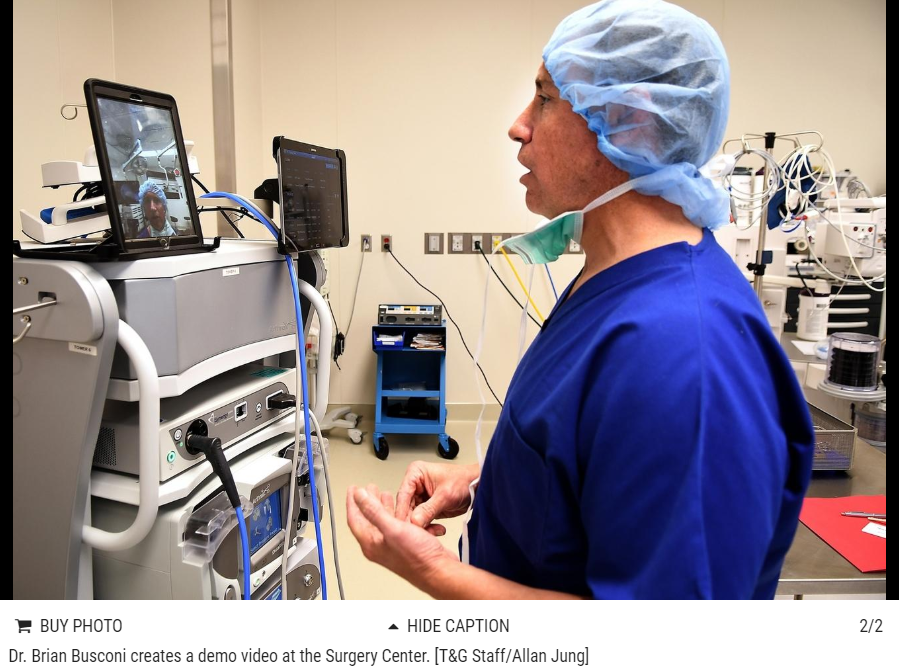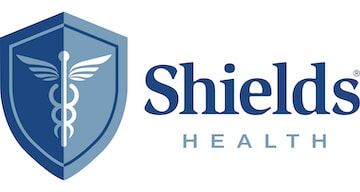Click Here: https://www.telegram.com/news/20190421/for-groggy-patients-doctors-videos-offer-help
For groggy patients, doctor’s videos offer help

By the time Terri Ryan returned home from knee surgery last year, the Uxbridge woman had something new in her email inbox: a video message from her surgeon.
Dr. Brian D. Busconi, an orthopedic surgeon with UMass Memorial Health Care, greeted her by name. He explained what happened during the procedure at The Surgery Center in Shrewsbury to repair cartilage and arthritis damage, and told her how to ice and to elevate her leg.
“When you wake from surgery, you think you’re listening,” said Ms. Ryan, a physical therapist who injured her right knee while stepping off exercise equipment. Although Dr. Busconi said all that to her in person after the surgery, she said, “I just wasn’t remembering it.”
It’s a common issue. Anesthesia impacts memory. As patients awaken from surgery, grogginess can dull attention.
Although surgeons typically speak to patients after they awake from anesthesia, patients may not be fully alert. Relatives at the bedside may be more focused on their loved one than on what a surgeon says. Patients go home with printed instructions, but confusion can arise.
Dr. Busconi said he has seen it all too often.
“Well over 75 percent of patients report they have minimal to no memory of the discussion afterwards,” he said. “These are procedures that are very fast. A patient will come in here a half hour before the surgery. Knee arthroscopy is 15 minutes. They go out to recovery, and in 45 minutes they’re ready to go home. They are ready to go home, but their brain is like 3 miles behind them.”
In response, Dr. Busconi turned to video – short messages he shoots on an iPad after finishing a procedure at The Surgery Center, a facility that opened last year and is a joint venture of UMass Memorial of Worcester, Reliant Medical Group of Worcester and Shields Health Care Group of Quincy.
It’s a twist on how the medical profession is tapping video to educate and consult with patients. At Newton-Wellesley Hospital, part of the Partners HealthCare Network, spine surgeon Dr. Louis G. Jenis sends stock videos to his patients about their coming spinal surgeries.
After the surgeries, he will make virtual video visits to those who have undergone simple procedures or do not need to travel to his office. He makes video calls to patients, typically connecting to them on their smartphones or home computers.
“It’s great for patient access to us,” said Dr. Jenis, who is also chief medical and innovation officer at Newton-Wellesley Hospital. “They don’t have to take time off from work, away from their families, sit in traffic. It’s also great for the health care system in terms of costs of care.”
In Shrewsbury, not all surgeons using the new surgical center make the videos, but the capability is there for those who want to do so, said Prashanth Bala, director of the surgical center.
“Some of the other surgeons can do everything listed but without the video, so the patient still has access to that information,” Mr. Bala said.
Dr. Busconi, who is also a physician for the Boston Red Sox, considers himself an early adopter of new technologies. He is also a paid consultant to Arthrex Inc., the Florida-based company that produced the surgical center’s imaging system.
His surgeries typically involve making repairs to knees, ankles and shoulders through small incisions in the skin. Devices loaded with tiny lights and cameras snake into the incisions and illuminate the tissues that need replacement. Dr. Busconi makes repairs while watching the action on large, high-definition screens in the operating rooms.
He can also snap photos of the injured and repaired tissue. After the procedure ends and the patient leaves the operating room for a recovery area, Dr. Busconi records a short video of himself speaking about the surgery.
He then attaches the videos, photos and a letter to an email that goes out to the patient. A separate email contains a password to the email, for security purposes. Dr. Busconi estimates he has created and sent hundreds of video messages to his patients since the Shrewsbury center opened.
When he can, he personalizes the messages.
“I had a gal who I operated on today whose husband was getting a 60-foot ladder to clean the gutters of their home,” he said. “I mentioned to her please make sure that he’s with you and doesn’t go up on the ladder. I’d rather not have a second patient.”
Ms. Ryan of Uxbridge said receiving a video left her feeling connected to her surgeon.
“It made me feel like he cared about me,” she said. “When you leave surgery, you don’t want to feel like you’re a number.”

